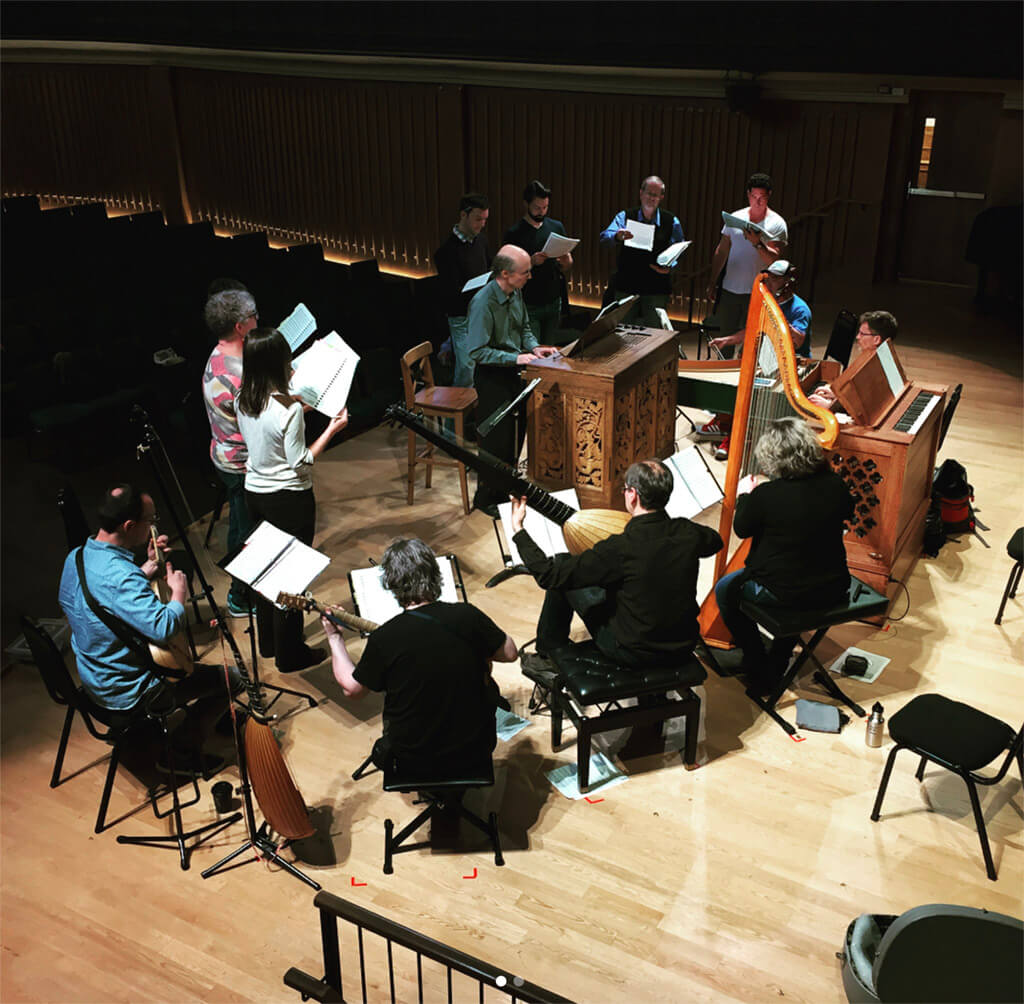
Monteverdi’s Orfeo: The Toronto Consort, La Rose des Vents, and David Fallis (conductor) at Trinity-St. Paul’s Centre. Runs through Sunday, May 27. See torontoconsort.org or 416-964-6337 for tickets.
Quick. Name a major musical work that was composed before the Eighteenth Century. It seems like a Trivial Pursuit question, but I’m willing to bet even experienced musicians would be hard-pressed to name, or at least agree on, a masterpiece that resonates with audiences today.
There aren’t many to choose from, but I would suggest Monteverdi’s Orfeo as a good pick for a landmark work in the early classical canon. As one of the first operas, it’s big enough (and long enough) to count, having orchestral, choir, and solo vocal parts. Initially written as entertainment for the Venetian Carnival, the orchestrated full score — a rarity in the Seventeenth Century — has survived and been revived by early music scholars and enthusiasts.
It’s also a fitting choice to round out The Toronto Consort’s 2017-18 season, which they did to a nearly sold-out crowd last Friday night at Trinity St.-Paul’s Church. As I mentioned, Orfeo is a big production and something of a big deal. It’s pretty much agreed that Monteverdi deserves a place in the classical canon as the father of opera. As anyone familiar with Greek mythology may know, it’s also a none-too-subtle message of the power of music, its titular character possessing musical abilities that give him near-supernatural powers.
It’s also an extremely demanding work to perform. Despite its thorough orchestration, you don’t get to hear the strings, winds or brass like in a more modern opera, and it has nothing approaching a conventional opera aria. The early music movement can take full credit for getting an audience to sit through over two hours of what basically amounts to sung dialogue, but any singer involved in a performance of Orfeo needs to have an extremely large expressive and dynamic range to both handle the many small musical details and avoid monotony. It’s hard.
And I’m happy to say that the Consort was, for the most part, up to the task.
Guest soloist Charles Daniels, as Orpheus, can sing with a level of attention to detail that leaves the audience hanging on his every word, as Monteverdi surely intended. Likewise Laura Pudwell, as Silvia, and Hope, held their own in a pair of intensely dramatic parts. The lesser parts, I’m sorry to say, didn’t have much detail or drama, and were drowned out for many of the key sections, but they weren’t missed.
More importantly is the fact that it’s both fun and rare to get a performance of a large-scale, early opera like this complete with a full backup band, and the orchestra was one of the production’s key assets. While the group the Consort put together didn’t quite match the five keyboards, seven plucked strings, pocket fiddles, and mute trumpets Monteverdi called for in the score — the sizeable orchestra and continuo section on hand, including the La Rose des Vents brass ensemble from Montreal, was more than adequate. A very agile and sensitive orchestra, under the direction of David Fallis, marked a moving performance, and the continuo band provided the audience with a rich palette of sound throughout.



